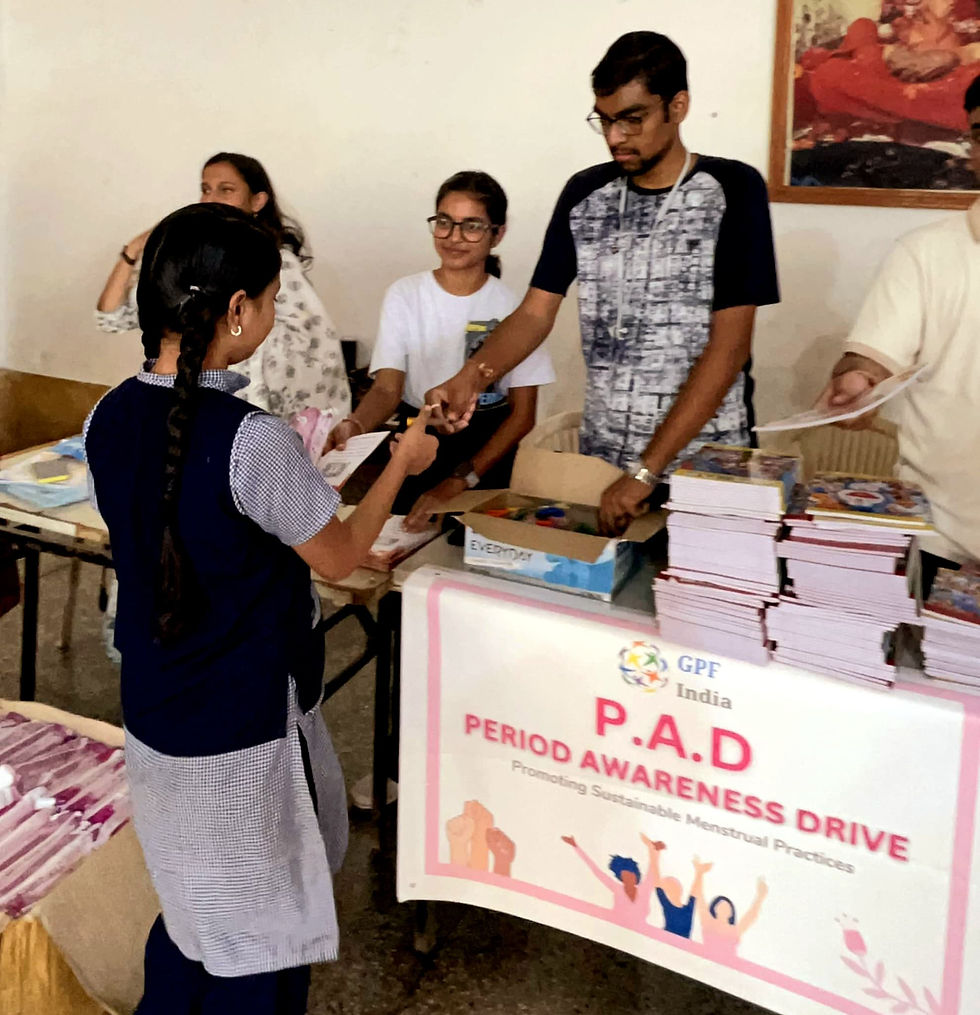Menstrual Health Matters: Educating the Next Generation
- GPF India
- Nov 30, 2024
- 2 min read
- By Komal Nagar
In India, menstruation is surrounded by stigma, discrimination, and limited awareness, leading to harmful practices and adverse impacts on women's lives. Many girls are forced to drop out of school or enter early marriages due to the taboo around menstruation. A lack of Menstrual Hygiene Management (MHM) and education forces women in many areas to use unsafe materials like rags, ash, and mud to manage their periods, causing health risks and school absenteeism.


In a significant initiative to enhance menstrual health and hygiene, GPF India, in collaboration with the Rotaract Club of Verve, recently conducted a Period Awareness Drive at Sandipani Muni School in Vrindavan, U.P. This event focused on demystifying menstruation—a natural biological process often clouded by stigma and misinformation. Through workshops, students were educated on essential topics such as menstrual hygiene, self-care during menstruation, and the benefits of using sustainable menstrual products. Approximately 200 students participated, engaging in discussions highlighting girls' challenges regarding menstrual hygiene management.
The workshop began with an engaging introduction and an ice-breaking activity designed to create a comfortable atmosphere for students to discuss the topic openly. During the workshop, students were given a comprehensive education on essential topics, including menstrual hygiene, self-care during menstruation, and the benefits of using sustainable menstrual products. The session emphasized that menstruation is a normal biological process and should not be a source of embarrassment or shame. The participants eagerly engaged in discussions, asking questions about period pain, PCOD, missed periods, and cycle tracking. For many, this was the first time they could share their own first-period stories, highlighting how stigma and misinformation have made their journeys challenging


A key aspect of the workshop was the distribution of Suvidha sanitary napkins, affordable, eco-friendly and oxi-biodegradable products made available through the Pradhan Mantri Jan Aushadhi Kendra scheme. Alongside the sanitary products, the girls were given educational materials, including notebooks, pens, and bookmarks, to further promote both menstrual hygiene and academic empowerment. This incentive encourages menstrual hygiene but also enables young girls through education and awareness.


The success of the workshop lies not only in educating students but also in involving the broader community. The GPF India team held a meeting with the school’s principal, emphasizing the role teachers and administrators play in supporting girls during their menstrual journeys. By involving educators, the initiative aims to create a more inclusive and understanding school environment, where menstruation is treated as a normal and manageable part of life.





Comments